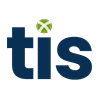According to Stefan Berndt, Head of HR for TIS, flexible and hybrid working arrangements are essential in today’s working environment. TIS believes in giving their staff flexibility, a core value for the company, to choose whether to work from home or in the office as well as when and how often. “Allowing people the flexibility to choose is key. When staff are treated with respect and given a choice, they make good decisions. The right results then follow,” explains Stefan.
[buzzsprout episode=’9306345′ player=’true’]
Are we really ready for Hybrid working, both technically and psychologically? Stefan admitted that probably no one is entirely ready, but it is crucial to begin. The key here is showing and extending trust. So far, over the course of the pandemic, experience at TIS has been very good. The workforce’s engagement has supported and strengthened the resolve of HR and senior management to offer the possibility of choosing a hybrid mix. Stefan emphasized that for him, trust and respect are always the foundation for success.
Is a new hybrid working arrangement easier because TIS is a fintech and relatively small compared to global corporations? “Yes, probably”, admitted Stefan, “but this is also about mindset, so size should not be the key determining factor”. This is, of course, different for some industries. Manufacturing needs many of its workers on sight, which is not the case for a tech company.
Stefan is still not sure how many days a week staff will choose to work in the office. “I think working 2-3 days a week from home will become the norm. But, every week, month and year will be different,” explained Stefan. When asked what reasons staff give for wanting to work remotely, he explained that one significant factor is the commute. Reducing time on the road adds to a positive work-life balance, i.e., more time for the family. People love the flexibility and the fact that they are trusted; however, some colleagues say that working from home is not an option. Distractions and noise levels, e.g., small children and little space, can make working from home difficult. In essence, everyone has a different story! “That is why it became clear that we needed a framework, key guiding principles so that each person can choose the right path for themselves. No one wanted to discuss with 220+ employees about individual or flexible working arrangements,” noted Stefan.
Stefan feels that the technology available today is sufficient to support what is needed for effective remote working. However, additional programs such as booking a desk online for in-office time, maybe next. When asked about areas of concern or at least areas for attention, Stefan noted that there is still a lot to be discussed in regard to remote leadership. Leaders will have challenges such as different age ranges and preferences from a staff with different purposes and backgrounds. There is also the issue of managers getting to know employees that they have never met face-to-face. In addition, certain tasks are more collaborative that others and require people to be together on-site for the best results. Stefan and his team are studying the concept of effective distance leadership and trying to better understand how to support TIS managers in coping with the new reality.
In terms of geography, TIS has a very clear policy. To work for the company, you need to be a resident in the country where you are employed. Stefan certainly agrees that it makes sense to be flexible for short(er) periods if an employee wants to work remotely from a completely different city or country location. “The best thing we can do is listen to our staff and be there to help,” explains Stefan. “There is no one-size-fits-all solution out there that will work and copying another company’s program does not make sense. We need to find a model that fits our company using flexibility as a key principle. Talent is individual, and we will listen to our people to build a working environment where people can thrive!”



